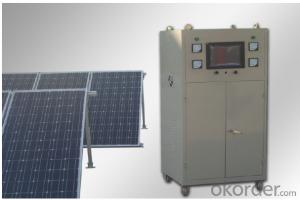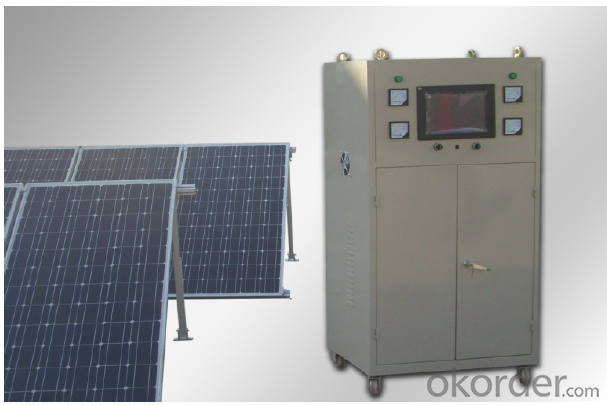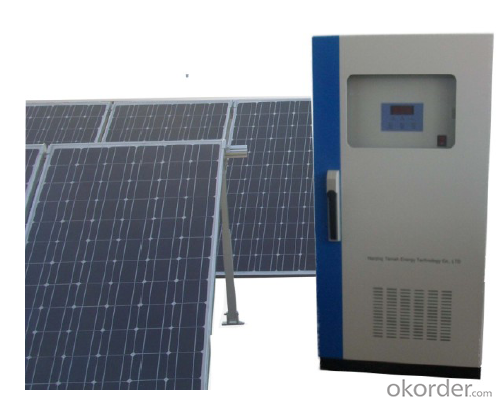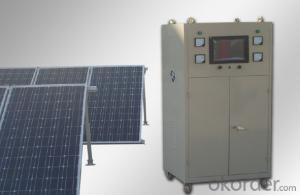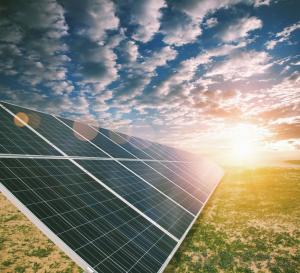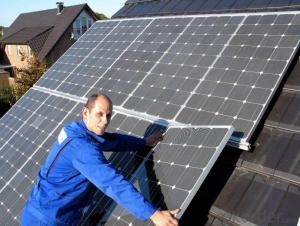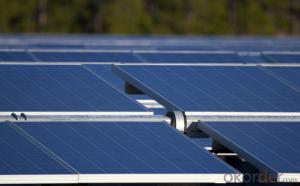Tesla Solar Energy Systems - CNBM-K8 5kW Solar Home System with Low Price
- Loading Port:
- China main port
- Payment Terms:
- TT OR LC
- Min Order Qty:
- 1 watt
- Supply Capability:
- 100000000 watt/month
OKorder Service Pledge
OKorder Financial Service
You Might Also Like
Specification
Description:
CNBM Solar is a world top leading solar manufacturer . With China government backup ,CNBM has set up
many warehouses in the world
The capacity of CNBMSolar is reach to 1GW, andmake sure each year our shipment capacity is more
Than 700-800MWs, at the same time, wehave set up the largest solar power station with our partner
in Ukraine.
CNBM is a Quality + Service orientedcompany with“Excellence at Each Step” approach, composed of
the finest components from TUV andIEC-certified partners around the world, CNBM modules consistently
undergo a variety of trials at thecompany’s Test & Development Centre, ensuring peak performance
capabilities. The company iscommitted to develop and provide the world with clean and renewable energy
to ease the energy shortages as wellas human kind’s impact on the environment.
Data:
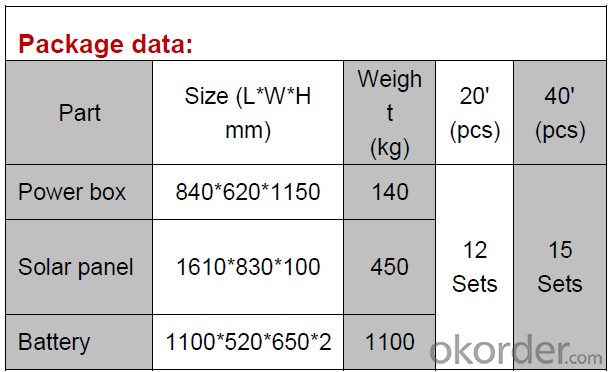
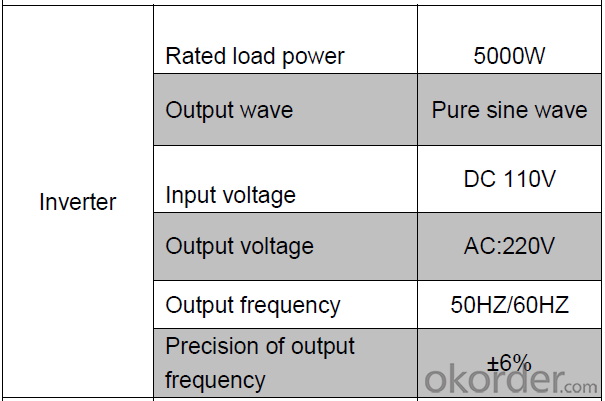
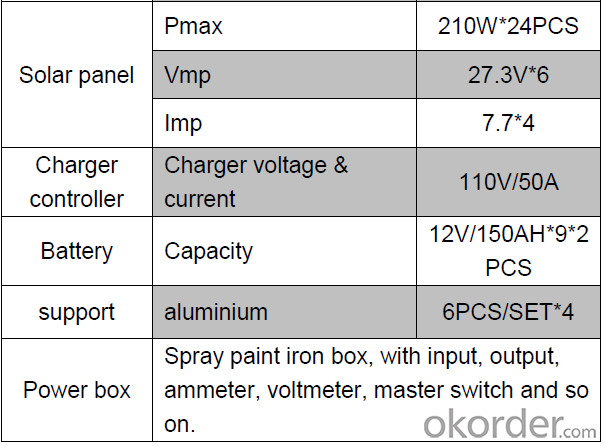
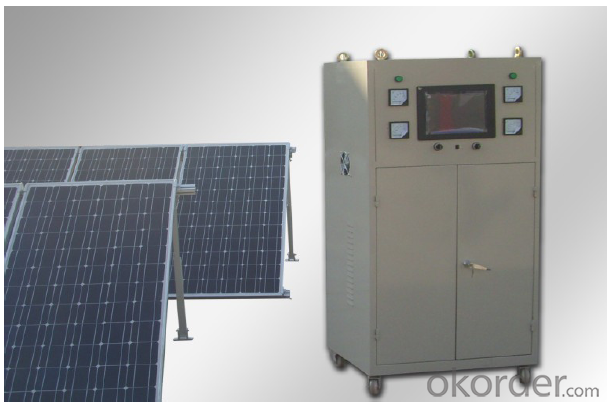
FAQ:Could you introduce more about CNBM ?
CNBM is abbreviation of China National Building Material Corp .It is a state owned company . One of Global Fortune 500 .
- Q: Can solar energy systems be used to power large industrial facilities?
- Yes, solar energy systems can be used to power large industrial facilities. Advances in solar technology have made it possible to generate electricity on a large scale through solar panels or concentrated solar power systems. These systems can provide a significant amount of power required by industrial facilities, reducing their reliance on traditional energy sources and minimizing their carbon footprint.
- Q: Can solar energy systems be used for powering remote cabins or cottages?
- Yes, solar energy systems can definitely be used to power remote cabins or cottages. In fact, solar power is an ideal choice for off-grid locations as it provides a sustainable and reliable source of electricity without the need for a connection to the utility grid. Solar energy systems consist of solar panels that convert sunlight into electricity, a charge controller to regulate the charging of batteries, and an inverter to convert the stored energy from the batteries into usable AC power. This setup allows the solar panels to capture sunlight during the day and store the excess energy in batteries for use during the night or on cloudy days. Remote cabins or cottages often lack access to traditional power sources, making solar energy systems a perfect solution. These systems can be specifically designed to meet the energy demands of the cabin, taking into account factors such as the number of appliances, lights, and other electrical devices used. By properly sizing the solar panels and battery capacity, it is possible to provide enough power to meet the needs of the cabin occupants. Moreover, solar energy systems are low maintenance and can last for several decades with proper care. This makes them a cost-effective and reliable source of power for remote cabins or cottages, eliminating the need for noisy and polluting diesel generators or the hassle of transporting fuel to the remote location. Additionally, solar energy systems can be combined with other renewable energy sources such as wind turbines or micro-hydro systems to create hybrid power systems, ensuring a continuous power supply even during periods of low sunlight. In conclusion, solar energy systems are an excellent choice for powering remote cabins or cottages. They provide a sustainable, reliable, and low-maintenance source of electricity, allowing occupants to enjoy the comforts of modern living even in remote locations.
- Q: How does temperature affect the efficiency of solar panels?
- Temperature affects the efficiency of solar panels by causing a decrease in their overall performance. As temperature rises, the efficiency of solar panels tends to decrease due to the negative impact on the photovoltaic cells. This decrease in efficiency is mainly caused by an increase in electron resistance within the cells, leading to a reduction in the conversion of sunlight into electricity. Therefore, it is crucial to consider and manage the temperature of solar panels to optimize their efficiency and maximize energy production.
- Q: Can solar energy systems be used for powering water pumps?
- Yes, solar energy systems can be used to power water pumps. Solar-powered water pumps, also known as solar water pumping systems, use the energy from the sun to operate water pumps, providing a sustainable and renewable source of power for pumping water. These systems are particularly beneficial in remote or off-grid areas where access to electricity is limited or unavailable.
- Q: Can solar energy systems power an entire home or business?
- Yes, solar energy systems can indeed power an entire home or business. With advancements in technology and improvements in solar panel efficiency, it is now possible to generate enough electricity from solar energy to meet the energy needs of residential and commercial buildings. By installing an appropriately sized solar panel system and incorporating energy storage solutions, it is feasible to rely solely on solar power for all electricity requirements, making it a sustainable and cost-effective choice for powering homes and businesses.
- Q: Can a solar energy system be installed on a ground mount?
- Indeed, it is possible to install a solar energy system on a ground mount. In reality, ground-mounted solar systems are highly popular and offer numerous advantages compared to roof-mounted systems. Ground-mounted systems typically have a larger size and can accommodate a greater number of solar panels, resulting in increased energy production. They can also be positioned at the ideal angle and orientation to maximize sunlight exposure, which may not always be achievable on a roof. Furthermore, ground-mounted systems are more easily accessible for maintenance and cleaning since they are not situated on the roof. Therefore, if there is ample space available on your property, opting for a ground-mounted solar energy system can be an exceptional choice for generating clean and renewable energy.
- Q: Are there any environmental impacts associated with solar energy systems?
- Solar energy systems do have some environmental impacts, although they are generally considered to be much less harmful than those associated with traditional energy sources. Greenhouse gases and other pollutants can be released during the production and disposal of solar panels, especially if not managed properly. Additionally, the mining and extraction of raw materials used in solar panels, like silicon, can cause negative environmental consequences. However, these impacts are relatively minor when compared to the emissions and pollution caused by fossil fuel-based energy generation. Moreover, solar energy systems do not generate air or water pollution during operation and do not contribute to climate change. Overall, while there are some environmental impacts related to solar energy systems, they are significantly outweighed by the long-term benefits of reducing greenhouse gas emissions and transitioning to clean and renewable energy sources.
- Q: Can solar energy systems be combined with energy storage technologies like batteries?
- Yes, solar energy systems can be combined with energy storage technologies like batteries. This combination allows for the storage of excess solar energy generated during the day, which can be used during times when the solar panels are not producing enough energy, such as at night or during cloudy weather. Energy storage technologies like batteries help in optimizing the use of solar energy and ensure a more consistent and reliable power supply.
- Q: Are there any risks of electrical malfunctions or failures during extreme weather events with solar energy systems?
- Solar energy systems may encounter risks of electrical malfunctions or failures during extreme weather events. While solar panels are designed to withstand various weather conditions, such as rain, snow, and wind, they remain susceptible to damage in severe weather events like hurricanes, tornadoes, or severe storms. In extreme weather, high winds have the potential to physically harm solar panels by dislodging them from their mounts or causing them to break. Heavy snowfall can also cover the panels, reducing their efficiency and potentially causing them to collapse due to the weight. Additionally, lightning strikes during thunderstorms can jeopardize the electrical components of the solar energy system, leading to potential malfunctions or failures. Nevertheless, it is important to note that solar energy systems are typically equipped with safety measures to minimize these risks. Many solar panels undergo testing and certification to ensure they can withstand specific wind speeds and snow loads. Sturdy and secure mounting systems are utilized, and electrical components often have surge protection to safeguard against lightning strikes. Furthermore, solar energy systems are interconnected with the power grid, enabling a seamless transition to grid power during extreme weather events if needed. This helps mitigate the impact of potential malfunctions or failures. To mitigate the risks associated with extreme weather events, regular maintenance and inspection of solar energy systems are crucial. Periodic check-ups and cleaning can ensure the panels are in good condition, and any signs of damage or wear can be promptly addressed. It is also advisable to seek guidance from a professional installer or technician who can offer advice on specific weather-related risks and potential solutions.
- Q: Do solar energy systems require a backup battery system?
- No, solar energy systems do not necessarily require a backup battery system. However, adding a battery storage system can provide benefits such as storing excess energy generated during the day for use at night or during power outages.
Send your message to us
Tesla Solar Energy Systems - CNBM-K8 5kW Solar Home System with Low Price
- Loading Port:
- China main port
- Payment Terms:
- TT OR LC
- Min Order Qty:
- 1 watt
- Supply Capability:
- 100000000 watt/month
OKorder Service Pledge
OKorder Financial Service
Similar products
Hot products
Hot Searches
Related keywords
